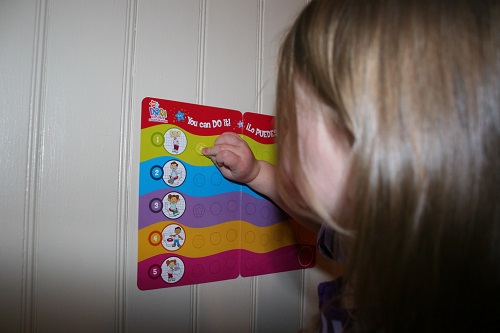Parenting Hacks That’ll Make Your Life Easier
Being a parent isn’t easy. It’s your job to take a small, confused primate that was born expecting to live in the jungle, and teach it how to communicate using words, make things with its hands, navigate roads, and someday get a job so that it can care for itself. Children are messy, loud, difficult, and generally inconsiderate, which is just the way they need to be, and just how nature made them! So unlike a difficult career, school subject, or task, you can’t just find a cheat code that lets you do whatever you want. For long periods of your life, everything will revolve around them. But these twelve hacks might just make things a bit easier.
Gossip

Image Source: themotherco.com
We’ve come to think of gossip as a bad thing, but really it’s the context that makes or breaks it. We all get angry when we hear someone say behind our backs that our new t-shirt looks dumb. But when they say it looks amazing, that makes us feel great. Why? Because when someone says something behind our backs we assume they’re being really honest. And kids understand that too! So try and get your kids to catch you “gossiping” about the things they do well, and they are more likely to repeat the behaviour. For younger kids you may get away with talking to a toy, but for older kids consider “accidentally” leaving a message open on your phone that praises them.
Use star charts

Image Source: pinterest.com
Kids will work tirelessly for abstract rewards. Haven’t you seen how long they will play video games for? Imaginary points are like real toys to kids: a piece of evidence of stuff they have done, that they can look at and show off. So exploit this. Get them a star chart. Start the day with maybe three stars. Then add them and take them away based on behaviour. As your kids get older they may want to start trading stars for rewards, so set star targets and at each target give the option of unlocking a reward or banking the stars for a bigger reward. Don’t make the rewards all about money, though!
Don’t judge them personally

Image Source: pinterest.com
It can be very hard when our kids do something stupid not to think of how stupid they are being. Or to think of them as annoying, uneducated, or brutish. Because very often they are. And even though this will never stop us loving them, sometimes we judge them very harshly based on beahviour we disapprove of. But this personal judgement is unfair on them. Kids have different needs, interests, and experiences from us, even at their young age. We are different people. Rather than thinking or saying “you are stupid” or “you are being stupid”, reframe it so it isn’t a personal attack: “doing X is not smart”.
Give gifts thoughtfully

Image Source: pinterest.com
We live in a world where money rules everything. And sometimes it’s hard to see that money doesn’t actually rule your kids worlds yet. What does? Well… you do. They crave time with you, your attention, and your approval. They crave it as much as they crave that toy they saw on TV, if not more. And that toy will just get played with a few times and forgotten. Your love makes timeless memories. So when giving a gift, focus on things you can do together, that show your love, and not on things that are trendy or expensive. This way you will prevent your child growing up to put money before people.
Make swaps

Image Source: pinterest.com
It can be hard to get a small child, or even an older child, to do as they are told. You want them to give you something, do their homework, or help with chores, but they say “no” and… then what? This is where the power of bartering comes in. You probably already do this, but in an uncontrolled manner. “Do your homework and you get a chocolate bar.” “If you finish dinner, I’ll let you stay out late.” But you can actually harness these swaps for good. Assign a value to every chore they have and every thing they enjoy. Then, when they ask for something, tell them what to do to get it. Or ask them to do something by offering them a reward. They don’t need to know the system; the key is just to be consistent.
Speak their language

Image Source: pinterest.com
You might have noticed but… your kids speak a very different language to you. And whilst with older kids and teens you will just get cringes and complaints for copying their speech, with toddlers and primary school children you will find them more open and obliging. As kids’ language skills develop, sometimes the words you use really are too much for them. When you’re face to face with a tantrum-throwing toddler or a confused and tired seven year old, mimic their language in an empathic, loving way, to truly get through to them and help them understand you in return.
Show off

Image Source: pinterest.com
Nobody likes a show off? Well your kids sure do! Children learn from observing adults and to them, everything we do is amazing. Sometimes we will limit ourselves to make them feel better about their skills or to give them a fighting chance at something. But we need to remember to do the opposite sometimes too. Make an amazing cake, lift something so heavy they can’t budge it, or recite a long story to them. By showing them how we perform at our full potential, we are giving them something to aspire to, and showing them what sort of standards are expected in the wide world.
Let them make mistakes

Image Source: pinterest.com
That said, don’t put the pressure on them directly! It’s one thing to show your kid that you can bake a great cake, lift heavy things, and memorize a lot of stuff. It’s another to hold them to some arbitrary standard and not let them make mistakes. The two ways parents get in the way of mistakes are by taking over, and criticizing. Instead of taking over, let your kid do things on their own and supervise only for safety. And instead of criticizing them, offer supportive feedback during the process and positive words when it’s over and done. “Don’t get paint on your trousers” followed by “wow, you barely got any on your trousers” can make the world of difference to confidence.
Learn their patterns

Image Source: pinterest.com
Nobody knows your kids better than you… but that doesn’t mean you know them one hundred percent! Kids grow and change like all people, so take your time getting to know them. Learn their mood swings, sleep cycles, nutritional needs, and how long it will take them to drop a ridiculous trend. By knowing their patterns and schedules not only can you help them more, but you can live your life better. If your 9 month old naps every three hours, but has been up for two, and your 5 year old is due a day full of tantrums and is looking suspiciously peaceful, now may not be the time for shopping!
Choose battles you can win

Image Source: pinterest.com
This is a common mistake parents make, from newbies to veterans: we pick an unwinnable battle, stick to our guns, and lose. What’s an unwinnable battle? Something you can’t force your kid to do. If they’re running with scissors and you give them a warning, then you can win the battle by taking the scissors away. But if they upset their sibling and you give them a warning, you can’t force them to apologize. Every time you get emotionally invested in an unwinnable battle, you’re telling your kids that you aren’t that powerful, and that there are ways of winding you up. So don’t fight tooth and claw when you can’t win.
Don’t be afraid of their attachments

Image Source: pinterest.com
An easy mistake to make, and we all do it, is to assume a behaviour that is unhealthy in an adult is also unhealthy in a child. This is the logic behind “cry it out” sleep training, spanking, and confiscating beloved teddies. We think that their love, trust, and bonding should resemble an adult’s and that anything we indulge now will create bad habits. But really the opposite is the case! Kids that are naturally clingy are just aware of their needs, and they know that you meet all their needs, so they cling to you! These kids grow up into adults that are aware of their needs and know how to meet them. Which means clingy kids = independent teens and adults.
Be the bigger, stronger person

Image Source: pinterest.com
The last one can be tough, especially when we’re not feeling on top of the world, but we need to work on this. Our kids see us as superheroes, the winners of their world. They don’t know or understand that we have depression, debt, uncertainties, or weaknesses. And showing them our raw, human side can scare them. They rely on us for everything, so if we want them to be strong, secure, happy kids, we need to hide our weakness from them. It’s fine for them to know these things exist. But don’t let your kid think their life is in the hands of anything short of a superhero. That’s the burden we bear.
